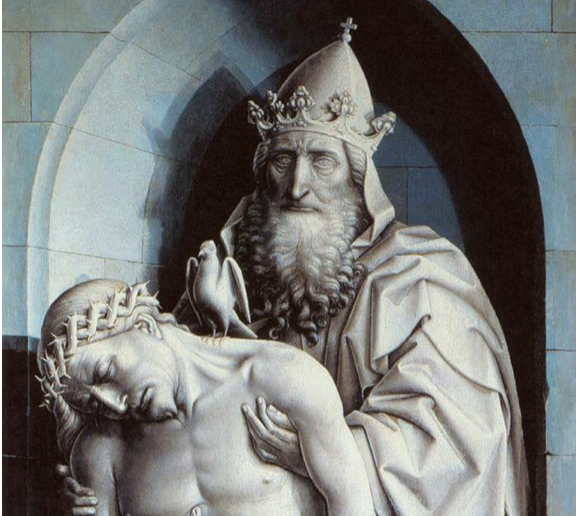By Rev. Canon Stewart Murray, Incumbent at St. Barnabas, Ottawa
(published in the April issue of ‘Crosstalk’, the newspaper of the Anglican Diocese of Ottawa)
The celebration of the Easter season concludes with the Ascension of Christ and the coming of the Holy Spirit at Pentecost. Many parish communities celebrate Pentecost with great fanfare and energy: birthday cakes, balloons and variations on the theme of ‘tongues of fire’.
The celebration of Trinity Sunday, the Sunday after Pentecost, does not grab our imagination in the same way. There are no dramatic tongues of fire or speaking in tongues or gifts of the Holy Spirit.
The focus of Trinity Sunday is on the nature of God himself as revealed in the doctrine of the Holy Trinity. It is a celebration of the Church that, like Easter, cannot be transferred or replaced by some other theme or celebration. The revelation of the doctrine of the Holy Trinity is as essential as Easter itself. It is one of the cornerstones of the Christian faith, firmly anchoring us to the truth revealed about the nature of God in the life, death and resurrection of Jesus. The revelation of the nature of God as Father, Son and Holy Spirit and of Jesus as the fullness of God entering into time to redeem humanity are the very heart of the Christian faith. The summary of this truth contained in the Creeds of the Church is the standard by which our ideas of Jesus are measured. The ancient creeds of the Church – the Apostles’ Creed, the Nicene Creed and the Creed of St. Athanasius – were a response to questions about who Jesus is that the Church faced in the first 5 centuries of its mission.
Is Jesus simply a prophet and a revered teacher? Is he some kind of divine being or deified man? Is Jesus essential to knowing the living God? Or is he indeed God who took flesh and became the infant in the manger and the man on the Cross? The danger is that without an understanding of Christ rooted in the truth that we celebrate on Trinity Sunday we have settled for a false gospel. Unmoored from the Creeds, we can have a rather vague and amorphous faith, in which Christ is not the definitive means of God’s loving redemption but a Jesus of our own imagination. With a full and rich understanding of the Holy Trinity we come to realize that in Christ we are restored to sharing the fullness of life of the living God for which we were created.
The revelation that Jesus is fully God and fully human, and that by the loving desire of the Father and by the power of the Holy Spirit he lived, died and rose again for all of humanity and indeed all of creation, guides our mission today. The words and actions of Jesus as recorded in Holy Scripture become not only a source of inspiration but a teaching with authority, because they are from God. The great commission as recorded in Matthew 28 – “Jesus said, ‘All authority in heaven and on earth has been given to me. Go therefore and make disciples of all nations, baptizing them in the name of the Father and of the Son and of the Holy Spirit, teaching them to observe all that I have commanded you’” – becomes our primary mission. Our parish communities are the centres where we gather to experience by the grace of the Holy Spirit, the love and hope of God in Christ. Through worship, especially the Holy Eucharist, and in the Scriptures, we grow in love with Christ and one another. United in Christ, we live out our life in the Holy Trinity through the sharing of our hope and working to make Christ known and loved through service to the world.


